Abstract: Formal and nonformal educators help develop the environmental literacy (EL) of K-12 students, but do so in very different contexts. This paper describes educators’ views of their roles in developing student environmental literacy and barriers to that work. Educators with more advanced EL mentioned practices such as perspective taking and information evaluation. Many educators highlighted developing a connection – between students and the environment or between curriculum and students’ lives – as key to their work. The barriers identified reflect previous research, with nonformal educators also identifying access to student and peoples’ access to their sites as a major barrier.
Continue Reading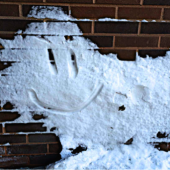
Abstract: This paper introduces an experiential learning assignment “Snow Challenge 2015” incorporated into an undergraduate-level interdisciplinary humanities and social science-based course focusing on a single Arctic Indigenous culture: the Sámi [Lapps] of Finland, Norway, Sweden, and the Kola Peninsula. The assignment used the open-source app Siftr and an accompanying open-access informational website on Sámi snow terms to allow students to apply Lule Sámi snow terminology to snow phenomena they observed in and around their home campuses and neighborhoods. The assignment’s goal was to enhance student learning related to each of the four categories of environmental literacy presented in Hollweg et al.’s (2011) framework: knowledge, attitudes, competencies, and behaviors. A content analysis of a random sampling of student essays written at the conclusion of the assignment showed significant enhancement of student learning, particularly in the areas of attitudes and competencies. The assignment helped model for students the value and nature of an Indigenous-centered curriculum and the pragmatic nature of Indigenous traditional knowledge in living effectively within a winter environment.
Continue Reading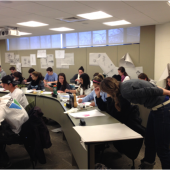
Engaging students not majoring in science, sustainability or environmental studies in learning environmental literacy and shifting their attitudes and behavior toward nature often requires a multi-perspective approach and presents unique challenges. We sought to: (1) pair artistic perspectives with botanical concepts to educate and interest our students in learning environmental literacy, (2) engage our students in careful observation and visualization of nature, and (3) increase the environmental sensitivity of our students by connecting botany with nature based art. To do this we designed a pre-class assignment, an in-class botanical art workshop, and a written reflection assignment that asked students to view, conceptualize, and create works of botanical art as a multi-perspectival process of engaging with relevant scientific processes and environmental concerns connected to botany. Here we provide a justification for the value of bridging science with art, detail our approach, describe student survey responses and thoughtful written reflections, and illustrate lessons learned and future plans.
Continue Reading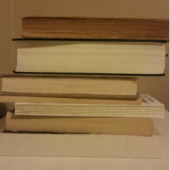
Abstract: This study sought to determine the influence of environmentally themed higher education courses upon students’ self-perceptions of their environmental literacy. Past research has suggested mixed conclusions about the objectives, approaches, and impacts of environmental and sustainability education in higher education. This study assessed environmental literacy and the influence of pedagogical perspective and instructor emphasis in environmentally themed higher education courses. Using the Hollweg et al. (2011) framework for environmental literacy, the study assessed students’ self-perceptions of their environmental literacy in a pre- and post-test format. Data were analyzed using a paired samples t-test and one-way ANOVA with a Tukey HSD post-hoc test. The results of the study showed that environmentally themed higher education courses are having a significant influence on students’ self-perceptions of their environmental literacy. However, instructors seemed to emphasize behavior least of the four aspects of environmental literacy. These findings suggest that environmentally themed courses are having a strong impact, yet further integration of environmental education principles may be meaningful. This study clarifies the impact of environmentally themed higher education courses. The distinction between pedagogical perspectives delineates new understandings of the differences in environmental literacy change. This study serves as a ground for future research to build the implementation of environmental education in higher education.
Continue Reading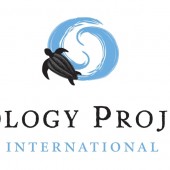
Ecology Project International (EPI) is a non-profit organization dedicated to developing place-based, ecological education partnerships between local experts and high school students to address critical conservation issues. This photo essay depicts local students in action at EPI’s programs in Baja California Sur – Mexico, the Galapagos Islands – Ecuador, and the Greater Yellowstone Ecosystem. The photos show students engaging in field science, applied conservation, and sustainability-related activities geared toward helping them develop environmental literacy.
Continue Reading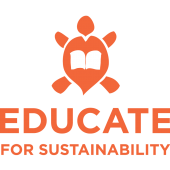
Colleges and universities strive to educate all students for a sustainable future; however, few institutions assess students’ knowledge of sustainability concepts. Hundreds of institutions are currently measuring their overall sustainability performance using the Sustainability, Tracking, Assessment, and Rating System (STARS), which offers a boost to an institution’s overall sustainability rating if that institution conducts a “sustainability literacy assessment.” Largely due to the popularity of STARS, many faculty and staff who are involved with campus sustainability management are seeking an easy-to-replicate assessment process and instrument. Researchers at the University of Maryland developed and conducted a sustainability knowledge assessment to meet the needs of their campus and to contribute a model for the greater higher education community. This paper shares the development process, assessment instrument, significant findings, and recommendations for campuses seeking to conduct their own assessment. Correspondence should be directed to the University of Maryland – Office of Sustainability at sustainability@umd.edu
Continue Reading